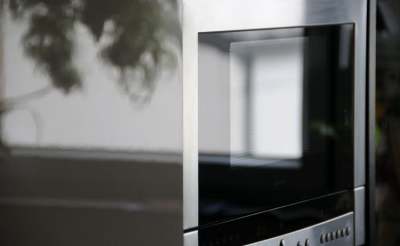This guide covers microwaves, including combination microwave ovens which also have conventional heating methods built in.
We look into energy efficiency, mainly in comparison with other cooking methods, and question whether the potential energy savings are worth the costs of manufacture.
We also offer some advice on how best to dispose of your unwanted microwave, try to separate fact from fiction when it comes to health risks, and look at the issues related to microwave meals.
Buying an ethical and eco friendly microwave oven
As with the other home appliances we have looked at like fridge/freezers and washing machines, some brands scored almost no points (out of 100).
Although the top-scoring brands don't get really high scores, there are definite differences in ethics if you are looking to buy a new or secondhand microwave.
In this guide to sustainable microwaves, we review the well-known brands like Bosch, Russell Hobbs and Zanussi, along with brands at both ends of the price range such as Cookworks (from Argos, owned by J Sainsbury), and Miele.



